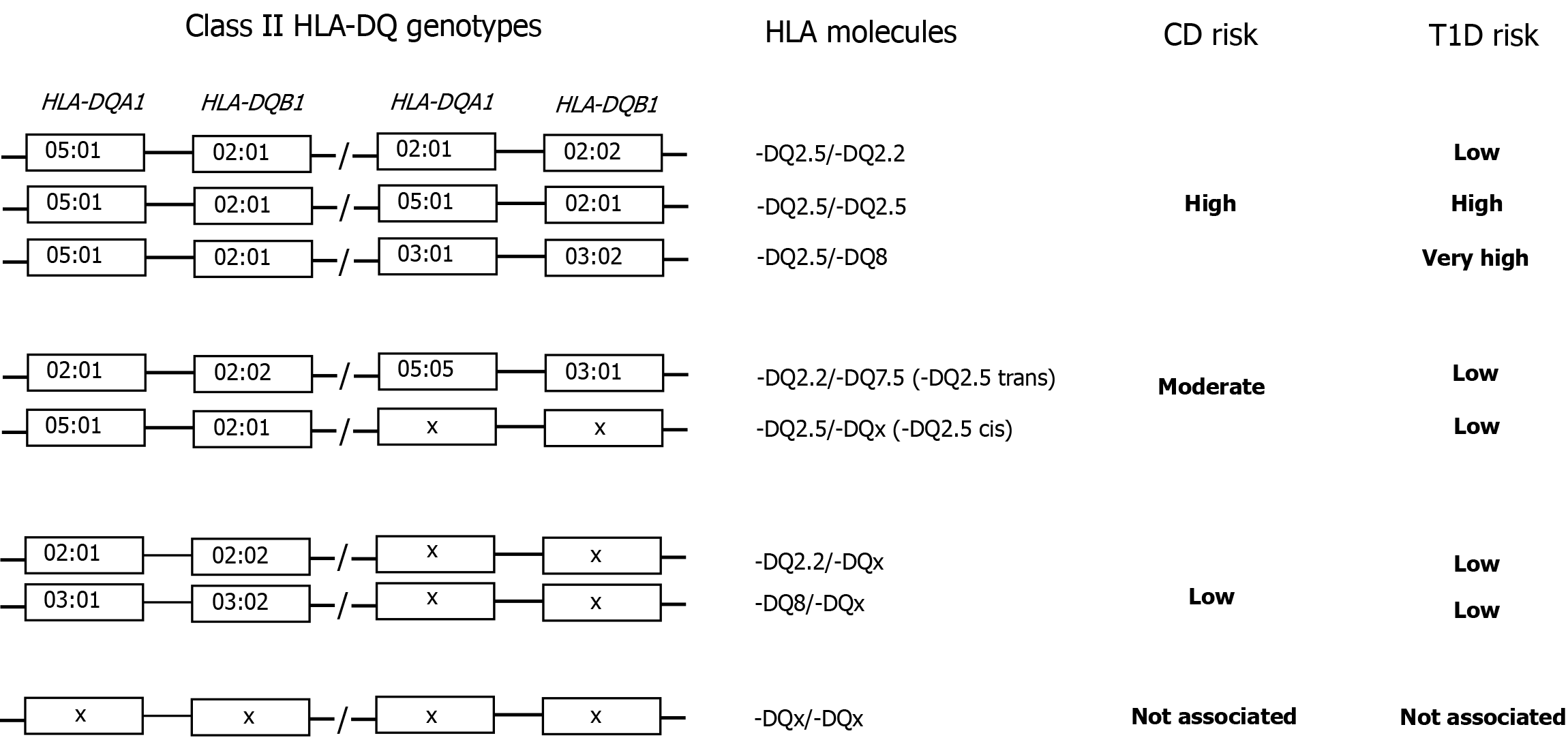Copyright
©The Author(s) 2025.
World J Gastroenterol. Apr 14, 2025; 31(14): 104397
Published online Apr 14, 2025. doi: 10.3748/wjg.v31.i14.104397
Published online Apr 14, 2025. doi: 10.3748/wjg.v31.i14.104397
Figure 1 Graphical representation of human leukocyte antigen genotypes grouped according to the current nomenclature of human leukocyte antigen molecules with the associated risk for celiac disease and type 1 diabetes.
The symbol x indicates other human leukocyte antigen (HLA)-DQ alleles not associated with celiac disease (CD). The HLA-DQ2.5/HLA-DQ2.2, HLA-DQ2.5/HLA-DQ2.5, and HLA-DQ2.5/HLA-DQ8 molecules confer high risk for CD (see also Table 2). HLA-DQ2.5/HLA-DQ2.5 and HLA-DQ2.5/HLA-DQ8 molecules are also associated with type 1 diabetes (T1D), conferring high risk and very high risk, respectively. Interestingly, the HLA-DQ2.5/HLA-DQ2.2 molecule strongly associated with CD confers a low risk for T1D. The HLA-DQ2.2/HLA-DQ7.5 molecule conferring a moderate risk for CD has a low risk for T1D. The other HLA molecules are similarly associated with both diseases. HLA: Human leukocyte antigen; CD: Celiac disease; T1D: Type 1 diabetes.
- Citation: Schirru E, Rossino R, Jores RD, Corpino M, Muntoni S, Cucca F, Congia M. Clinical settings in which human leukocyte antigen typing is still useful in the diagnosis of celiac disease. World J Gastroenterol 2025; 31(14): 104397
- URL: https://www.wjgnet.com/1007-9327/full/v31/i14/104397.htm
- DOI: https://dx.doi.org/10.3748/wjg.v31.i14.104397









